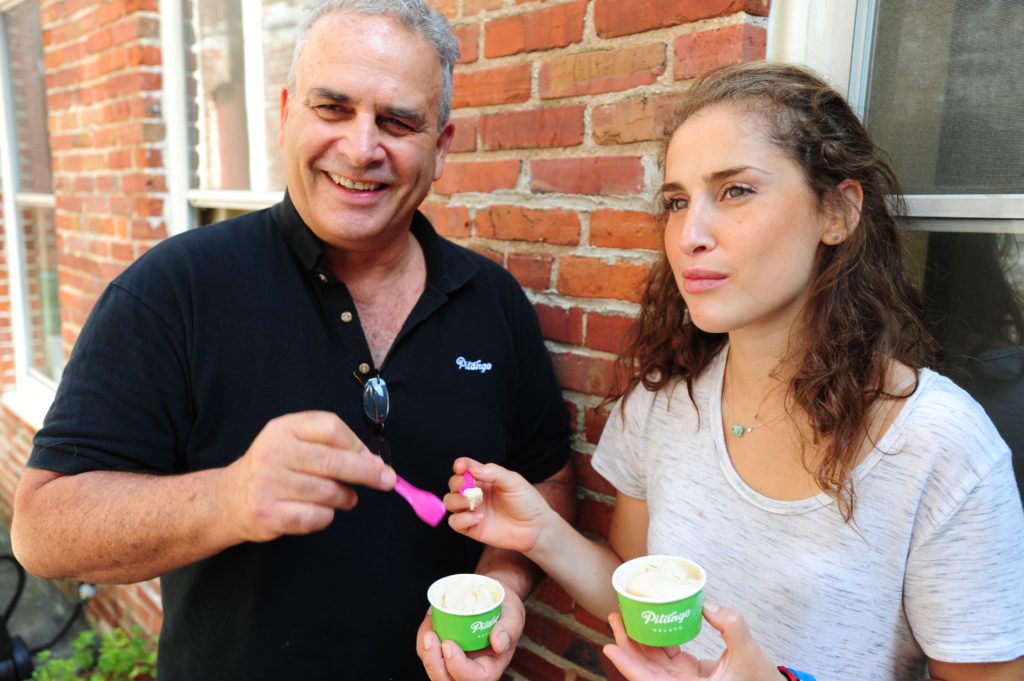Chatting with Chefs: Noah Dan of Pitango
By • November 9, 2017 0 2415

Noah Dan spent his childhood in Trieste, Italy, and founded Pitango in 2007 to recreate the pure and wholesome gelato of his youth. Still a family-owned business, Pitango now has five locations in D.C., Maryland and Virginia. Dan and his family work to use farm-to- cup sourcing. They have set up their own dairy at SpringWood Organic Farm in Lancaster County, Pennsylvania, use eggs from the farm’s free-range hens and harvest fruit from local orchards. Dan and his staff churn every batch of gelato and sorbet on location in each Pitango shop, including the newest, which opened Oct. 28 in Adams Morgan.
Tell us a bit about yourself. What’s influenced you from your youth?
Noah Dan: I was born in Israel and every summer I would travel to Italy to visit my mother’s side of the family. In Trieste, Italy, I was exposed to my grandma’s amazing cooking and the best chocolate and gelato I had ever had.
What’s the best part about your job?
ND: Having customers that truly appreciate the product.
What does it mean to you to cook and serve in Washington, D.C.?
ND: It’s a tricky thing, because I’m not exactly a person who goes for what’s popular. I just want to do what I like and do it right. People sometimes have a hard time understanding that to do something right isn’t always easy and often comes with a price. Sometimes D.C. appreciates this, but sometimes D.C. is so D.C.
Any celebrities you’ve scooped gelato for?
ND: We serve celebrities all the time. But if I told you, I would have to kill you.
Why the new concept?
ND: We want to create a new customer experience. We succeeded to bring gelato technology a few years backwards by using a vertical gelato mixer. The main thing that sets Pitango stores apart is that fact that we don’t make gelato in a factory. We whip our gelato fresh at each of our locations. This is the first Pitango location, however, to bring production to the front of the house and let people actually see how we make the gelato.
What about your food?
ND: What passes in America for an Italian sandwich is typically a super-sized mountain of meats and cheeses. I am trying to tone it down with a few honest, authentic, quality ingredients. For example, Prosciutto di Parma is probably one of the hardest products to make correctly, and so also probably one of the most easily abused foods on the market. People slice it too thick or too thin, or many not refrigerate it correctly. Rest assured, we take our prosciutto seriously — sourcing our prosciutto from a 100-year-old firm and hand-slicing every bite. We think we’ve learned how to serve it right.

